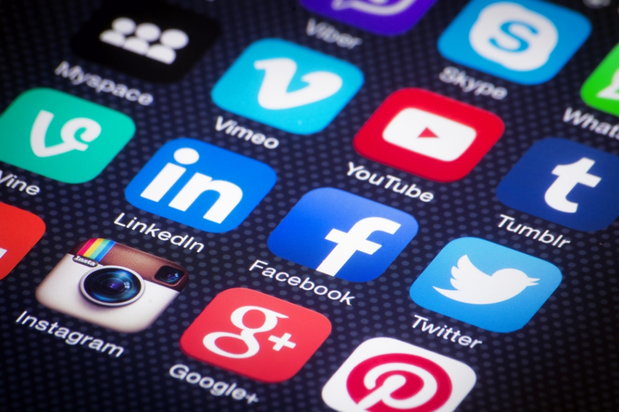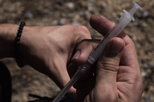What’s the difference between a drunk and an alcoholic?
An alcoholic goes to meetings!
This is one of the many addiction jokes we’ve all heard in sober recovery meetings, and some of them are pretty hilarious. While some of these addiction jokes may hit too close to home to be funny, others can keep us smiling until the day is over. Even on our worst days, some of the jokes we hear are exactly what we need to help us get out of the funk we can get stuck in.
Many of us in recovery have fun and joke with other members in the program and our close sober friends, but sometimes it’s hard to know where to draw the line. With all joking aside, we know that addiction and substance abuse are serious problems, and not a joking matter for those who are still sick and suffering. However, once we are in recovery and we are able to laugh about our former suffering, it can be a fun form of release. But how do we know when our joking crosses the line and becomes hurtful to those who aren’t in the sober recovery program?
Addiction Jokes Outside of the Program
A huge step in your recovery is leaving the circle of friends you once knew. Surrounding yourself with positive people who are either sober or supportive of your sobriety is an important part of maintaining a sober lifestyle. While we may change the friends we hang out with, we may forget to make changes in the way we deal with social media. Many of us in sober recovery may continue to keep the same "friends" on Facebook, Instagram or Twitter. In a way, this may give you a sense of relief because you can maintain a ‘virtual’ friendship with acquaintances without having to involve them in all the details of your life. Many of your online friends may not be aware of your problems with addiction, nor do they need to know. Social media allows you a certain amount of anonymity while still allowing you to follow major milestones and life occurrences experienced by those in your social network.
Addiction Jokes in Social Media
We all have at least one social media friend (or several) who consistently posts e-cards on their Facebook. For those of you living under a rock, an e-card is a digital postcard or greeting card that has been slightly modified with catchy sayings or to capture scenes that supposedly reflect your mood or lifestyle. Every day I log onto Facebook, and see multiple e-cards that pop up on my news feed. Some are funny; some are stupid; and then some are off-color jokes about alcoholism.
When e-Jokes Become Hurtful
I must admit, a few of these addiction joke posts have made me giggle, because they were true. For example: “I suggest we drink before we go out drinking!” If that one isn’t a true statement of alcoholic behavior, then I don’t know what is! But after reading a few more of these alcoholic jokes, I began to get upset. While it can be fun to joke about drinking and partying, where do we draw the line? For example, when I saw this joke, I felt upset: “Here’s the deal kids: you start crying, mommy keeps drinking.” Was this one supposed to be funny or was I just becoming an old hag who couldn’t find humor in the smallest joke anymore?
While the poster of this e-card may not have meant me or my friends any harm, it truly hurt. I know that there are addicts and alcoholics, some of whom I have met in the program, who have lived the truth of that statement. These people would be hurt to see that there are jokes being made about being a neglectful, alcoholic parent. But how do the people who post these jokes know where to draw the line?
Effects of Posting Photos on Social Media
The posting of photos on social media is even worse than posting e-card jokes. I will admit, during my drinking and using days, I constantly posted photos of myself when I was drunk--usually a shot of me the weekend before with captions joking about how I was an alcoholic but didn’t care. Of course, the easiest way to fix this problem was to delete all of the people who were drinkers from my "friends" list, but what would that solve? While many of them may not have a substance abuse problem like I did, they were just following a social media trend. It seems that social media has led everyone to believe that it is normal to post pictures of times you don’t remember or were so drunk that you blacked out. Some people find that this social media trend makes them drink more. Yes, it’s absurd to say that seeing photos of drunken people or a big party led you to drink, but it directly correlates with influencing young adults to believe that getting drunk every weekend is the social norm.
The Damage of Social Media Rants
Up until earlier this week, I had my Facebook turned on and open to the public--for those of you who don’t know, it’s been a whole ten years! I hadn't felt the need to deactivate my social media pages until recently, when I witnessed a rant from a person I had thought was more accepting of people in sober recovery. The rant, along with the comments in response to the rant, was too long to copy here, but it was something along the lines of how becoming addicted to drugs is a choice and the people who don’t choose to get sober are stupid. I immediately said my serenity prayer and read through the comments, only to find that they were all in agreement. Not one person vouched for those suffering from drug and alcohol addiction. I was appalled.
I understand that there is no way to make others understand addiction, but I was completely disgusted by the rant and the comments because I knew that these people would never rant or make such comments in a truly public forum. Let’s be realistic – if ten recovering addicts surrounded the ranter (or a commenter) and questioned his/her statements, the ranter's story would quickly change to defend what he/she had really meant.
The outlets of social media have led to trivializing addiction and the effects of alcohol and drugs use. They have desensitized people into believing that this disease can be cured and if you don’t seek out the cure, you’re an idiot. Maybe there is no way to make others understand, but I propose that instead of using social media to rant and criticize those with addiction problems, people should use social media sites to help spread awareness to help change the outlook of others.








